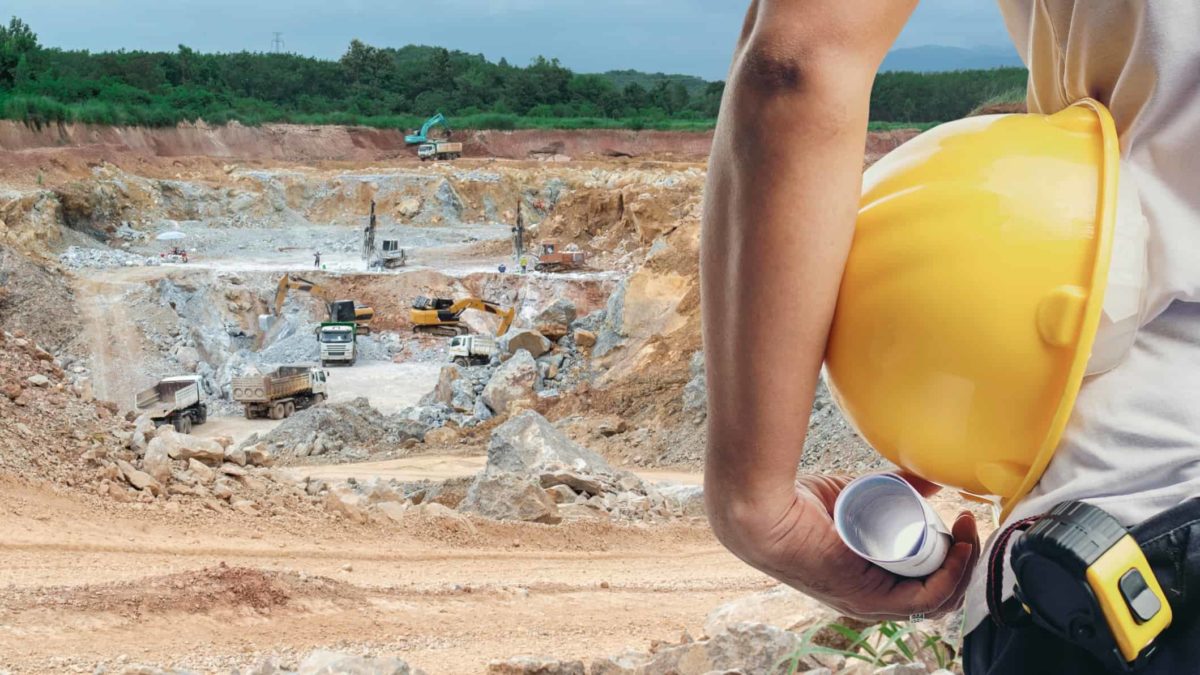Australia is a world-renowned supplier of natural resources, and ASX 200 mining and energy shares are among the largest and most popular stocks on the market.
Investors view these ASX 200 large-cap stocks as solid investments providing good dividend income.
A key component in the earnings of these companies is commodity prices.
Miners are 'price takers', which means they sell the stuff they dig up for prices largely dictated by the global commodities markets.
That's why we see ASX stock prices go up and down every day in line with commodity values.
If the iron ore price rises, it means companies like BHP Group Ltd (ASX: BHP) and Fortescue Ltd (ASX: FMG) will earn more, and this tends to push their share prices up.
So, it's helpful to know if commodity prices are likely to go up or down over the short to medium term.
Of course, no one has a crystal ball, but every year, the Federal Department of Industry and Resources has a crack at forecasting how commodity values will change over the next five years.
Those forecasts have just been published, and we've got all the details for you.
FY24 to FY29 commodity price forecasts
Here are the price forecasts for 10 different commodities.
Iron ore price
FY24: US$103 per tonne (up from US$95 per tonne in FY23)
FY29: US$75 per tonne
Examples of ASX 200 iron ore shares: BHP, Fortescue, Rio Tinto Ltd (ASX: RIO)
Gold price
FY24: US$1,995 per ounce (up from US$1,831 per ounce in FY23)
FY29: US$1,909 per ounce
Examples of ASX 200 gold shares: Newmont Corporation CDI (ASX: NEM), Northern Star Resources Ltd (ASX: NST)
Copper price
FY24: US$8,258 per tonne (down from US$8,289 per tonne in FY23)
FY29: US$10,061 per tonne
Example of ASX copper shares: Sandfire Resources Ltd (ASX: SFR)
Lithium spodumene price
FY24: US$1,800 per tonne (down from US$5,174 per tonne in FY23)
FY29: US$1,231 per tonne
Examples of ASX lithium shares: Pilbara Minerals Ltd (ASX: PLS), Core Lithium Ltd (ASX: CXO)
LNG price
FY24: $17 per gigajoule (down from $21 per gigajoule in FY23)
FY29: $12 per gigajoule
Brent crude oil price
FY24: US$84 per barrel (down from US$87 per barrel in FY23)
FY29: US$73 per barrel
Examples of ASX energy shares: Woodside Energy Group Ltd (ASX: WDS), Ampol Ltd (ASX: ALD)
Uranium price
FY24: US$85 per pound (up from US$51 per pound in FY23)
FY29: US$119 per pound
Examples of ASX uranium shares: Paladin Energy Ltd (ASX: PDN), Boss Energy Ltd (ASX: BOE)
Metallurgical & thermal coal prices
Metallurgical
FY24: US$289 per tonne (up from US$277 per tonne in FY23)
FY29: US$207 per tonne
Thermal
FY24: US$135 per tonne (down from US$302 per tonne in FY23)
FY29: US$115 per tonne
Examples of ASX 200 coal shares: Whitehaven Coal Ltd (ASX: WHC), Yancoal Australia Ltd (ASX: YAL)
Alumina & aluminium prices
Alumina
FY24: US$341 per tonne (down from US$343 per tonne in FY23)
FY29: US$369 per tonne
Aluminium
FY24: US$2,204 per tonne (down from US$2,333 per tonne in FY23)
FY29: US$2,685 per tonne
Examples of ASX alumina shares: Alumina Limited (ASX: AWC), South32 Ltd (ASX: S32)
Nickel price
FY24: US$17,889 per tonne (down from US$23,911 per tonne in FY23)
FY29: US$20,950 per tonne
Example of ASX nickel shares: IGO Ltd (ASX: IGO)
The trends driving commodity values
There is a clear main trend in this year's numbers. Commodity prices are more likely to rise for the metals and minerals essential to the green energy transition, such as copper, which is used for electrification.
This will directly benefit ASX 200 mining shares specialising in the red metal.
Minister for Resources Madeleine King said commodities would continue to underpin Australia's economic wellbeing.
While global prices are easing, the March 2024 Resources and Energy Quarterly shows demand is likely to be sustained for commodities used in low emissions technologies, including iron ore, copper, aluminium and lithium. The road to net zero runs through Australia's resources sector.
Another trend is the rising demand for resources from India.
While demand from China will continue to drive commodity prices, India is expected to need a lot more resources as it industrialises. The Indian economy is the fastest growing in the world right now.









